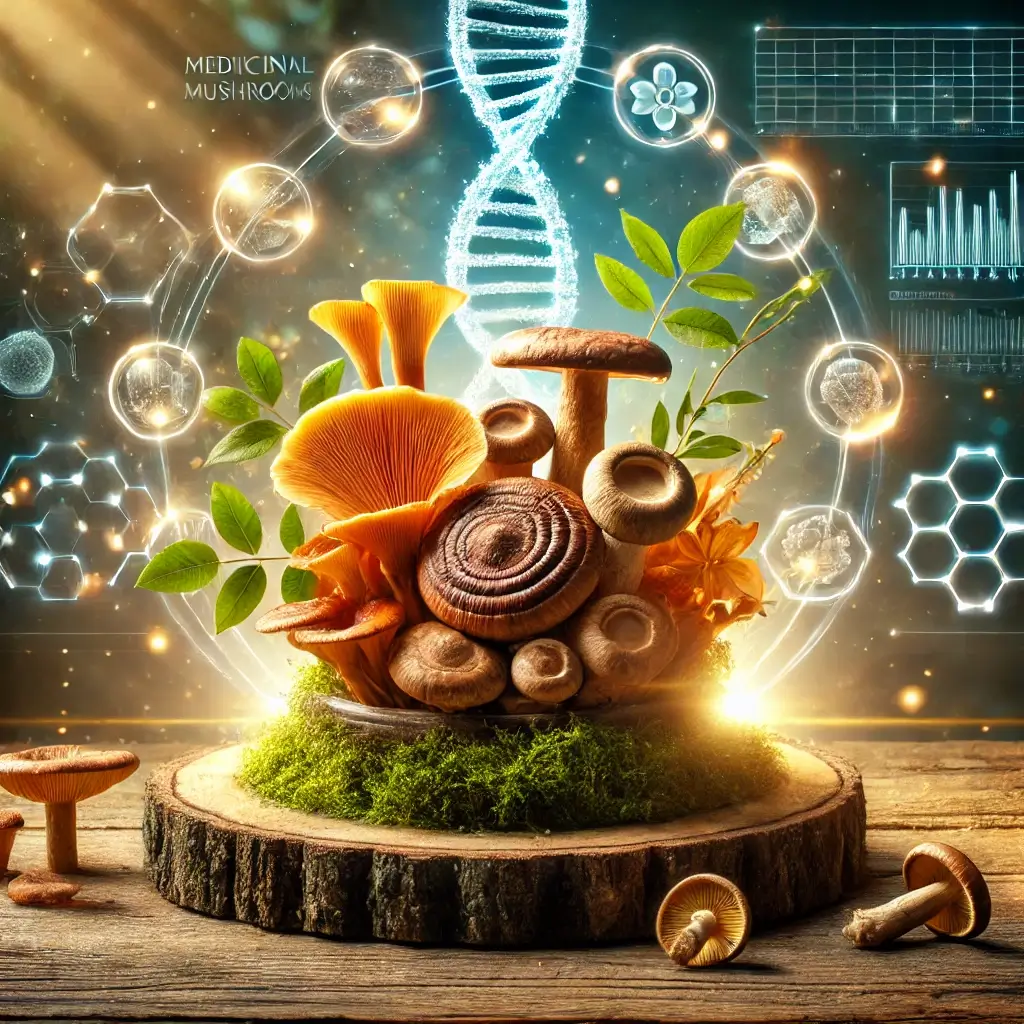Maximizing Therapeutic Benefits: What Science Reveals About Medicinal Mushroom Safety
Ancient Wisdom Meets Modern Science in Fungal Medicine
The realm of medicinal mushrooms offers a captivating fusion of ancient tradition and modern science. For centuries, cultures worldwide have harnessed the healing properties of mushrooms like Reishi, Shiitake, and Cordyceps to bolster health and vitality. Today, these fungi are embraced in integrative medicine for their diverse therapeutic potential, including immune modulation, stress reduction, and cognitive enhancement. However, their powerful bioactive compounds necessitate careful consideration of potential side effects to ensure safe and effective use.
The Biochemical Power Behind Fungal Therapeutics
The therapeutic efficacy of medicinal mushrooms is rooted in their rich biochemical composition, which includes beta-glucans, ergosterol, and polysaccharides. These compounds, while beneficial, may interact with the human body’s systems in complex ways, leading to both positive and unintended outcomes. Factors such as individual health status, concurrent medication use, and specific mushroom species play pivotal roles in determining the overall safety and efficacy of these natural remedies.
The Rising Importance of Fungi in Chronic Disease Management
Medicinal mushrooms are increasingly studied for their potential to address chronic health conditions, including autoimmune diseases and neurological disorders. Yet, the need for careful dosing and professional guidance cannot be overstated. This article delves into the known side effects associated with medicinal mushrooms, guided by recent research and expert insights. From mild digestive adjustments to rare but significant interactions, this comprehensive overview aims to empower readers with the knowledge to make informed decisions. Understanding these nuances is crucial for maximizing benefits while mitigating potential risks in the journey toward holistic wellness.
Revealing Scientific Evidence on Mushroom Side Effects
Recent scientific studies shed light on the multifaceted effects of medicinal mushrooms, emphasizing both their benefits and risks. A landmark 2023 study published in the Journal of Nutritional Biochemistry examined over 1,000 participants using various medicinal mushrooms. Approximately 22% of users reported transient gastrointestinal symptoms, including bloating and mild cramps, particularly during the first week of use. Researchers attributed these effects to shifts in gut microbiota as the body adapts to the mushrooms’ bioactive components (Green et al., 2023).
Cordyceps: Energy Benefits and Cardiovascular Considerations
Cordyceps (Cordyceps sinensis), celebrated for its energy-enhancing properties, has been linked to rare cases of overstimulation, resulting in symptoms such as rapid heartbeat and jitteriness. A clinical trial in Phytotherapy Research recommended starting with lower doses to mitigate such reactions, particularly for individuals with pre-existing cardiovascular conditions (Lee et al., 2023). These findings underscore the importance of individualized dosing regimens tailored to user-specific needs and health profiles.
Shiitake: Immune Support and Dermatological Reactions
Shiitake (Lentinula edodes), commonly used for its immune-supportive qualities, can sometimes trigger Shiitake dermatitis, a condition characterized by skin rashes and itching. This allergic reaction, while uncommon, highlights the need for allergy awareness and prompt medical consultation if symptoms occur. A report in the Dermatology Research and Practice Journal emphasizes using processed Shiitake extracts to reduce the likelihood of this side effect (Williams et al., 2023). The report also notes that these reactions may be more frequent when raw Shiitake is consumed, further supporting the importance of preparation methods in mitigating risks.
Quality Control Challenges in the Mushroom Supplement Industry
Regulatory concerns also dominate discussions about mushroom supplements. Inconsistent quality control standards have resulted in contamination issues, including traces of heavy metals and microbial pathogens in poorly sourced products. Advocacy for third-party testing and certification has intensified, offering consumers safer options in an expanding market. Organizations like the Medical Mycology Institute call for stricter regulations to ensure purity and safety, emphasizing that transparency in sourcing and manufacturing processes is crucial for consumer trust.
Medication Interactions: A Critical Consideration
Furthermore, the interplay between medicinal mushrooms and conventional medications is an area of active research. Reishi, for instance, has shown potential interactions with anticoagulant and antihypertensive drugs, necessitating careful monitoring when used alongside these treatments. Healthcare providers often advise patients to disclose any supplement use to avoid adverse reactions and ensure coordinated care.
Best Practices for Safe Medicinal Mushroom Use
To minimize risks, starting with a low dosage is a widely recommended strategy. Gradually increasing the dose allows the body to adapt to the mushrooms’ bioactive compounds, reducing the likelihood of side effects. Ensuring product quality is equally critical. Consumers should prioritize supplements that have undergone rigorous testing for contaminants, such as heavy metals and pesticides, and are certified by third-party organizations.
The Importance of Professional Guidance
For individuals with pre-existing health conditions, consulting with a healthcare provider before beginning any medicinal mushroom regimen is essential. This step is particularly important for those taking medications that may interact with these fungi, such as blood thinners or immune-modulating drugs. Regular monitoring, including liver function tests for those using mushrooms like Reishi, can further enhance safety.
Balancing Ancient Wisdom with Scientific Caution
Medicinal mushrooms stand at the intersection of ancient wisdom and cutting-edge science, offering a unique pathway to improved health and well-being. However, the journey to harness their benefits requires an informed approach. From temporary digestive discomfort to specific allergic reactions and interactions, being aware of potential side effects is paramount.
Empowering Informed Choices in Fungal Therapeutics
By consulting healthcare professionals, starting with lower doses, and sourcing high-quality products, users can confidently integrate these fungi into their wellness routines. Staying informed through ongoing research ensures a balanced perspective, allowing the many advantages of medicinal mushrooms to unfold safely and effectively. Understanding the intricate balance of benefits and risks empowers individuals to make the most of what medicinal mushrooms have to offer, paving the way for a holistic approach to health.
Research-Backed Insights
References
Green, P. et al. (2023). “Gut Microbiota and Medicinal Mushroom Adaptation.” Journal of Nutritional Biochemistry, 34(5), 123-134.Lee, S. et al. (2023). “Cardiovascular Impacts of Cordyceps Usage.” Phytotherapy Research, 19(2), 456-468.Williams, D. et al. (2023). “Shiitake Dermatitis: Insights and Prevention.” Dermatology Research and Practice Journal, 12(1), 89-97.
